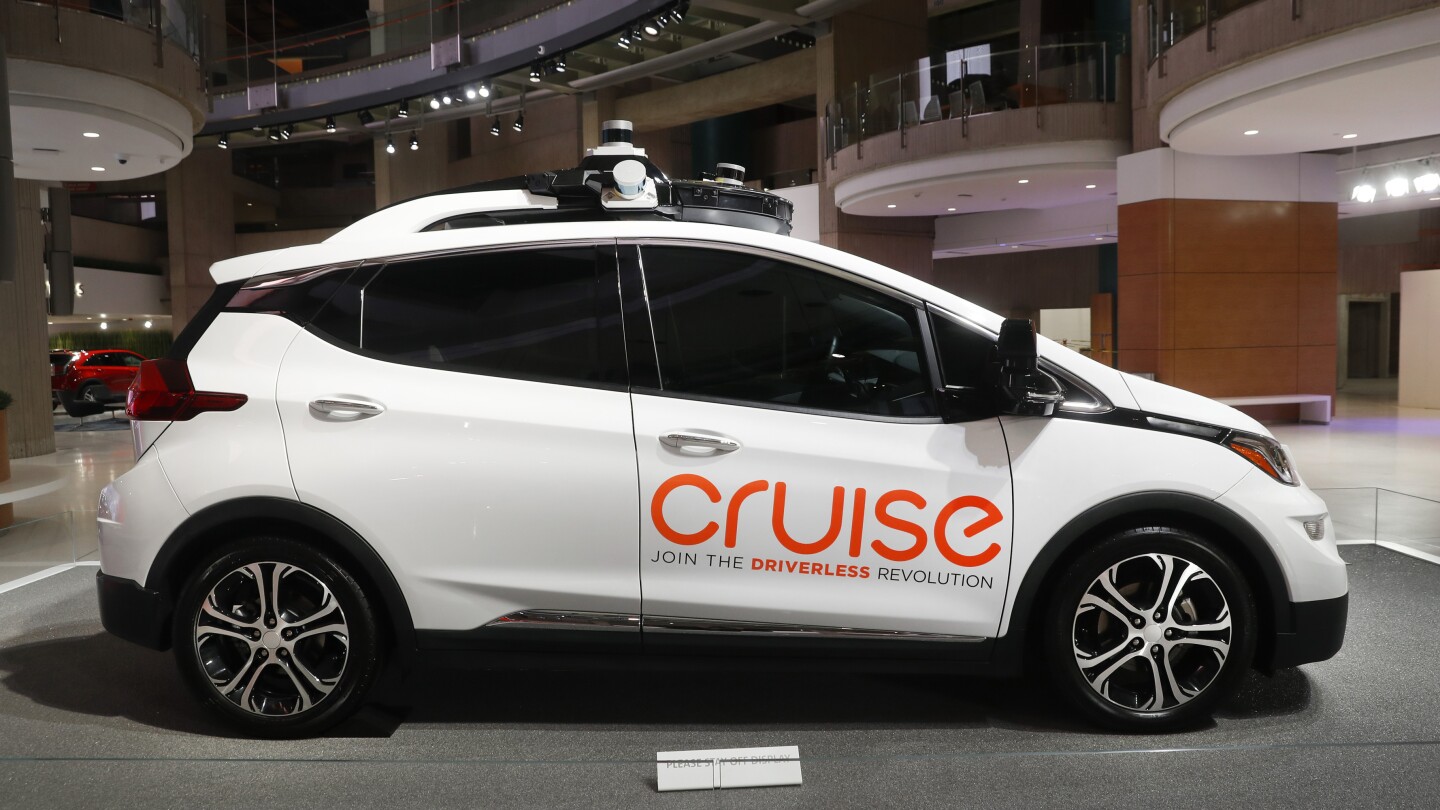Hypx
- 2 Posts
- 27 Comments

 01·1 year ago
01·1 year agoThere will come a day when people will realize that even tech companies aren’t worth that much.

 01·1 year ago
01·1 year agoI suspect there is something more to this than just that. After all, the car in question did this:
Earlier this month, a Cruise robotaxi notably ran over a pedestrian who had been hit by another vehicle driven by a human. The pedestrian became pinned under a tire of the Cruise vehicle after it came to a stop — and then was pulled for about 20 feet (six meters) as the car attempted to move off the road.
It seems like there are unsolvable safety problems going on.

 01·1 year ago
01·1 year agoEveryone with a brain has left Xitter.

 01·1 year ago
01·1 year agoI’ve come to realize that many a tech company are ran by morons.

 01·1 year ago
01·1 year agoTech has become a scam in many areas. It’s just doing the same thing as it always has been, just with an abusive corporate master. The goal is to scam the investor into funding bad ideas, or use that funding to undercut the competition. It is rarely about innovation anymore.

 0·1 year ago
0·1 year agoAre you talking about FCEVs? You can also include directly electrified vehicles, but that is mostly mass transit.
And yes, electrification as a whole will succeed. But BEVs probably are not. I call them fads because they are just toys for the rich and they are unlikely to be affordable for most people.

 0·1 year ago
0·1 year agoIt’s wrong because li-ion batteries at the time were way better than what it claims:
https://news.panasonic.com/global/press/en091218-2
This is from 2009, and already we reached 675 Wh/L. So there’s no way the DoE link is true.

 0·1 year ago
0·1 year agoExcept those fundamental limits are far higher. The fact is that hydrogen stores energy at 120 MJ/kg. Even at 5% weight efficiency, that’s 6 MJ/kg. Or 1,666 Wh/kg. At 10%, it is 3,333 Wh/kg. Far beyond any battery.
Your link is seriously lying. 8x is the gap between lead-acid and li-ion batteries. The claims are simply impossible. The author must be unknowingly comparing lead-acid battery powered cars to li-ion battery powered cars. I cannot see any other way his claim is true.
A lithium-air battery is literally a fuel cell. In fact, what did you think hydrogen fuel cells were this entire time?

 0·1 year ago
0·1 year agoI would say that’s pretty unlikely there will be a 10x improvement in battery chemistry. At some point, we will have to deal with the fundamental limitations of the technology. That will likely imply a different kind of EV. Other conversations in this thread have brought up the FCEV, which is honestly the mostly likely guess for what comes after the BEV. In other words, the solution is to move beyond batteries, not pretend we can just improve batteries ad absurdum.
Also, this is basically the point of the book The Innovator’s Dilemma. Technology does not improve linearly exclusively. At some point, major shifts in the market will have to happen. If you think about this problem honestly, you probably have to conclude that the limitations of the BEV must be solved by a big leap forward, not incremental improvements in batteries. And if you can reach that conclusion, then you must realize that the BEV has to be a transitional technology. Perhaps, even a fad.

 01·1 year ago
01·1 year agoFor one thing, this is sad because even more of the Internet is no longer reachable. The Internet shrinks, and will continue to get smaller as enshittification continues.
But on the other hand, this is really starting to look like the death knell of Twitter. It’s quickly becoming extremely inconvenient to see any tweets on Twitter now.

 0·1 year ago
0·1 year agoAgain, we can all see your votes!

 0·1 year ago
0·1 year agoSo basically downvote = disagree again.
Again, acting like you’re on Reddit just makes you a loser.
Are you going to reduce this post too? Is this post just another example of bad faith posting? Are you really that shallow?
LOL, proven to not just be a loser, but a dishonest loser too.

 0·1 year ago
0·1 year agoPS: You do know all favorites/boosts/reduces are public right? Like I can see that you are reducing all my posts. I’d prefer it if you don’t carry over this bit of Redditism.
LOL you’re such a loser.

 0·1 year ago
0·1 year agoUnlike you, I actually know something about the subject. BEVs are never going to be particular cheap cars. The only exceptions are things like neighborhood cars. Basically, the only make a BEV cheap is by not giving it any range.
In reality, it will be something else like FCEVs. And you should be more open to this possibility, not closemindedly think that it can only be the BEV.
Of course, many of his acolytes—especially those in Silicon Valley—have tended to believe that he has everything in hand.
One thing I’ve learned recently is how braindead much of the Silicon Valley venture capital community actually is. It wasn’t just that they all put their money in one bank that collapsed when they all pulled out. A major act of stupidity in itself. It is that they consistently have very little idea how business works in general. They seem to be living in an insulated bubble, and only survive because other people dump billions of dollars into their laps. No one checks up on them nor verify whether any of their startups are actually viable. It’s just more and more money dumped into their laps with most of it wasted.
Eventually, the cash spigot will end, and my bet is nearly all of them will forced out of the industry. Collectively, they have done nothing but waste hundreds of billions of other people’s money. Even their few “success” stories are examples like companies that got bought out with few of them ever making money, or companies that could only survive if the venture capital market was crazy strong. So even those are flops if we’re honest. So the whole thing seems destined to fail in a spectacular way.

 0·1 year ago
0·1 year agoLet me throw out a guess, you think it’ll be the hydrogen FCEV’s that will take over? Those can be pretty expensive right now though. Do you think the technology will improve and get cheaper over time by any chance?
Sure. In fact, FCEVs can be as cheap as ICE cars. They completely avoid the problem of needing giant batteries. As a result, their cost floor is the same as conventional cars today.
Can you really argue that BEVs will survive if you knew that? The better question is why would we even need BEVs if hydrogen cars prove to be far cheaper?

 0·1 year ago
0·1 year agoThat’s ridiculous. You basically admitted that we switched from germanium to silicon, but that this apparently doesn’t count as a difference.
Not to mention that this is massively off-topic. The point is that batteries do not improve as fast as transistors did in the 1990s. Hence why an analogy is wrong.
And if you are aware that Moore’s law is (more or less) dead today, then you should understand the problem that batteries are facing. They too are hitting hard physical limits. You talk of solid state batteries but they are nowhere to be found right now. Clearly, this is a hard problem and future batteries will not magically be far superior.
But ultimately, there are other green ideas not called the BEV. Including other types of EVs. This is why I try to make it clear that I am talking about BEVs specific. Not EVs in general. Once other people become aware of this fact, it will become much clearer that the BEV is a fad. It is an expensive and very limited idea. It is arguably an idea stuck in the mid-2000s, and its advocates have simply failed to move on.

 0·1 year ago
0·1 year agoYes, that is the argument. If it is a very expensive technology, it will only be for rich people. It could never be viable for poorer countries. Hence why it is a fad.
Last I checked, almost no human beings go into space. It is not at the level of “fad” because it is basically pure science and not a real market.
And please don’t use the word “EV” for this conversation. I’m talking about BEVs specifically. There are other types of EVs out there. Ones that will be much cheaper in the long-run. In fact, this is why I am 100% confident that BEVs are a fad. People who disagree with me simply aren’t aware that there are EVs that are not BEVs.

 0·1 year ago
0·1 year agoMaybe you should visit some poorer countries. BEVs are incredibly far away from being mainstream. Not to mention how much of the “success” of BEVs is due to subsidies. It is not an organic market.
The point is that you cannot compare BEVs to computers. And certainly not the period from the 1990s. BEVs are improving at a slow rate and will have major physical limitations preventing them from going beyond a certain level. That is the point.
And because of that, they are going to end up being a fad. By the time they are “ready” to take over, technology will have moved on and BEVs will be obsolete.


The solution is to eliminate self-driving cars and instead invest more in mass transit and walkable neighborhoods.